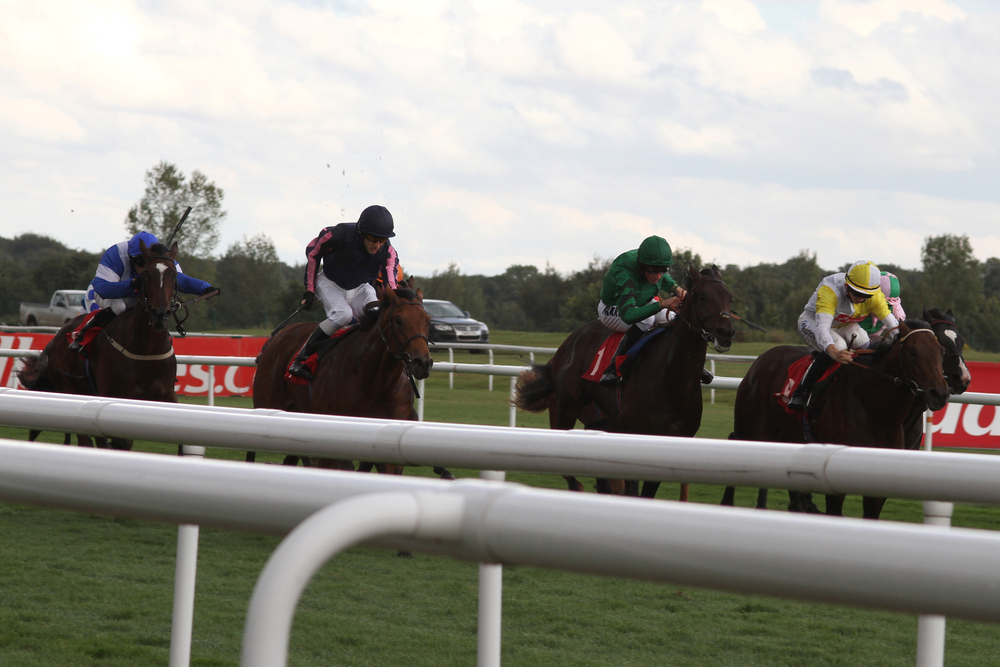Experienced Investor
Sell in May and go away: should you pull money from the stock market?

Investors who adhere to the old investment adage of ‘Sell in May and go away, don’t come back till St. Leger Day’ risk losing out on lots of potential money according to investment experts.
With the St.Leger horserace not taking place until 10 September, the saying goes that investors would be best served selling up their investments during the summer months. This is mainly because of the idea that many of the city’s top professionals spend a good deal of that time out of the office to enjoy a summer of sporting activities.
This has led to the belief that the summer months are a dangerous period for investors, with a high incidence of market sell-offs. But how much truth is there really behind this saying? And with the UK set to go to the polls in June, what are the dangers of pulling money out of the stock market now?
According to Hargreaves Lansdown, ahead of the UK election in 2015, investors withdrew some £2.7bn from UK equity funds. However according to its analysis of historical returns, selling in May could prove very costly to your returns.
“Trying to time the market is never advisable, even less so based on groundless superstitions,” says Laith Khalaf, senior analyst at Hargreaves Lansdown. “There was a big exodus from UK equity funds before the last general election, though that might not be repeated this time around. In the forthcoming election the winner looks more certain, on paper at least, and there is less time for investors to fret about the outcome.”
The numbers selling in May
Architas’ investment director Adrian Lowcock says the ‘Sell in May’ phenomenon can be traced as far back as 1694. He says that even though stock markets are meant to be efficient, this sort of seasonal behaviour still exists. However, he argues that while the summer months don’t tend to perform as well as the winter months, the differences are not significant enough each year to justify investors selling over the summer.
Hargreaves Lansdown data which stretches back to 1986 – when the FTSE All-Share Total Return Index was launched – found that selling at the start of May and buying back at the beginning of September has avoided market falls in just 12 out of 31 years. This represents a paltry success rate of just 39%. Or to put it another way, the remaining 61% of the time following such a strategy would have meant investors missed out on market rises.
To put this into monetary terms, Khalaf says an undisturbed £10,000 invested in the FTSE All-Share in January 1986 would have now grown to £183,907. However, if you followed the sell in May philosophy it would be worth £122,537, which is some £61,370 less.
“Last year is a reminder the sell in May adage is not guaranteed as markets rallied in the summer months following a short sharp sell of after the Brexit vote,” says Lowcock. “Markets continued to rally throughout the remainder of 2016 and this year the markets seem to be following the trend having performed well in the winter months with the FTSE 100 reaching new highs at the end of April. With markets at new highs it is reasonable to believe that they may take a breather as markets wind down for the summer and investors perhaps take a different view of the global economy.”
How dividends destroy the myth
When investing in the stock market, even when buying a tracker fund, investors get access to both the capital growth of their investments as well as the benefit of any dividends they may have received. Khalaf says that if you include these dividends the picture changes completely, with negative performance in the summer months transforming into positive returns.
For example from 1986 to 2015, with dividends reinvested but excluding costs, the FTSE 100 has returned a total of 20.57% during the summer months (May to September) compared with a total of -29.71%, excluding dividends. Khalaf adds that with dividends reinvested, the summer months deliver a negative return only 41% of the time for the FTSE 100, compared with 53% of the time if dividends are not reinvested.
The end of the jollies
While 2017 plays host to a summer of cricket and the British Lions visiting New Zealand in the rugby, Tilney’s managing director Jason Hollands says the days of city professionals packing up shop for a long summer sipping Pimm’s and Champagne at social events is but a distant memory. This is not least because new inducement rules frown upon such lavish corporate hospitality.
“These days, if a city professional is off on summer holiday, they’re almost sure to be forever checking news from the markets on a mobile phone or tablet, as information is now incredibly accessible,” Hollands says.
“Therefore when putting seasonality theories such as ‘Sell in May’ to the test, it is probably more relevant to only consider data since the ‘Big Bang’ deregulation of the city in 1986 rather than longer periods when the London markets operated as a gentleman’s club. And over this 31-year period, there isn’t a compelling case to systematically exit the market every year between May and mid-September, a move which could also incur trading costs or potentially crystallise capital gains tax liabilities.”
With stock markets currently riding high but volatility eerily low, Hollands notes that it’s easy to see why some investors might be wary of the outlook for markets this particular summer.
“But in truth it is nigh impossible to predict short-term market setbacks and the good times could well roll on for some time yet as global growth is picking up, business sentiment surveys have edged up and global earnings revisions have been positive this year. Investors with a long-term time horizon should stay invested rather than fret about what might happen over a few months.”